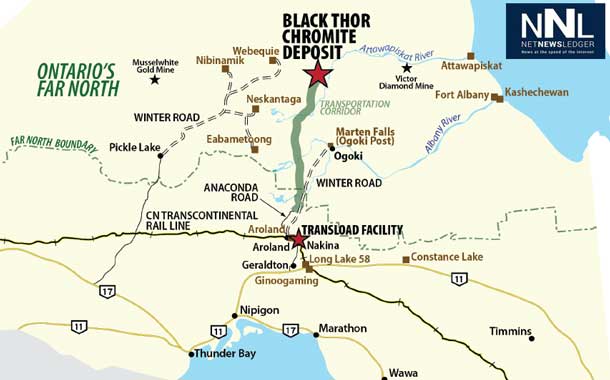Vaccinations for the Province’s Most Vulnerable to be Accelerated
TORONTO – COVID-19 Update – Speaking from Queen’s Park, the Premier imploded Ontario residents to stay home and help flatten the curve.
The Ontario government announced that despite of the slowdown of getting the COVID-19 vaccine, that the the vaccination of residents in long-term care, high-risk retirement, and First Nations elder care homes by a new target date of February 5, 2021.
To protect access to second doses of the Pfizer-BioNTech vaccine for those who have already received their first dose, Ontario will maintain the maximum interval of 21-27 days for long-term care, retirement and First Nations elder care home resident groups and up to 42 days between the two doses for all other groups. These adjustments are being made following notification by the federal government of reductions in Pfizer-BioNTech vaccine shipments.
Details were provided today by Premier Doug Ford, Christine Elliott, Deputy Premier and Minister of Health, Solicitor General Sylvia Jones, and General Rick Hillier (retired), Chair of the COVID-19 Vaccine Distribution Task Force.
“Due to the delay in the next shipment of Pfizer vaccine doses, we are ensuring all available supplies are redirected to those who need them most: our residents in long-term care and retirement homes,” said Premier Ford. “I know this will mean that some people may have to reschedule their vaccine appointments, but it is critical that our most vulnerable seniors receive the protection they need as soon as possible.”
On January 19, 2021, the federal government notified the province of further reductions in Pfizer-BioNTech vaccine shipments. Ontario will not receive vaccine deliveries for the week of January 25, 2021 and will receive just over 26,000 doses for the first weeks of February. As of today, Ontario has not been provided its allocation for the weeks of February 8, 2021 and February 15, 2021, creating further uncertainty for the province’s vaccine rollout.
In response to the significant reduction in distribution by the federal government and the uncertainty of future shipments, the province and vaccination sites have worked together to develop a plan to accelerate vaccination of the province’s most vulnerable. Second doses will continue to be administered based on availability of supply provided by the federal government. Actions being taken include:
- Accelerate vaccination of the most vulnerable populations across Ontario with the goal of visiting each home in the province to administer first doses by February 5, 2021, pending week of February 1, 2021 delivery dates.
- Doses of the Moderna vaccine will be reallocated to 14 public health units to ensure vaccines are administered at each long-term care home in the province.
“Despite ongoing challenges with supply, together with our partners, we continue to vaccinate our most vulnerable as quickly as possible, and we continue to be ready to administer vaccines to Ontarians as soon as we receive them from the federal government,” said Minister Elliott. “Until there is sufficient supply to vaccinate every Ontarian who wants to receive one, we continue to urge everyone to stay home and continue to follow public health measures.”
Ontario’s initiative to vaccinate northern, remote First Nations communities will also continue. To date, 760 doses have been delivered by Ornge to Sioux Lookout, with 568 doses administered by Sioux Lookout Meno Ya Win Health Centre and 45 doses administered by Sioux Lookout First Nations Health Authority (SLFNHA). Ornge has also delivered 680 doses to communities across James Bay Coast, with 575 doses administered or scheduled to be administered to remote fly-in First Nations communities, including 100 staff at Weeneebayko Area Health Authority (WAHA) vaccinated with a first dose. In February, Ornge will lead Operation Remote Immunity, to rollout the vaccine to 31 fly-in communities.
“We are working diligently with our partners to ensure vaccines continue to reach our Phase 1 priority populations, despite limited supplies from the Federal Government,” said Solicitor General Sylvia Jones. “It is critical that Ontarians continue to follow public health measures to ensure we limit the spread of COVID-19 and keep our communities safe.”
The government is ready to administer the COVID-19 vaccine and expand the number of vaccination sites as soon as doses are received. Ontario has capacity to vaccinate nearly 40,000 people per day and is building capacity to triple or quadruple that capacity pending federal government supply.
“We continue to push forward with our vaccination efforts across the province to ensure our frontline health care workers, remote First Nations and vulnerable populations are protected,” said General (Ret’d) Rick Hillier. “We will be ready to ramp up our efforts once again when more doses become available.”
Today, the government extended the declared provincial emergency for another 14 days. The declaration of emergency made under section 7.0.1 of the Emergency Management and Civil Protection Act (EMCPA), originally declared on January 12, 2021, will now expire on February 9, 2021, unless extended further. All orders under the EMCPA, including O. Reg 11/21 (Stay-at-Home Order), O. Reg 8/21 (Enforcement of COVID-19 Measures) and O. Reg 13/21 (Residential Evictions) were also extended. Orders under the Reopening Ontario Act (ROA) continue to be in force.
QUICK FACTS
|








